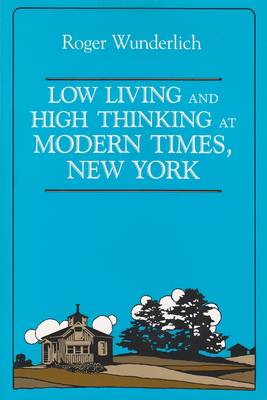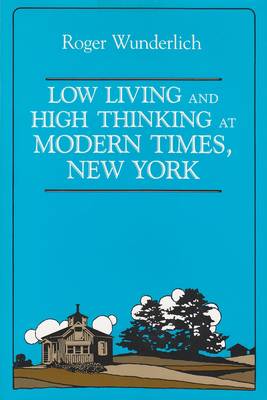
- Retrait gratuit dans votre magasin Club
- 7.000.000 titres dans notre catalogue
- Payer en toute sécurité
- Toujours un magasin près de chez vous
- Retrait gratuit dans votre magasin Club
- 7.000.0000 titres dans notre catalogue
- Payer en toute sécurité
- Toujours un magasin près de chez vous
Description
In the mid 1800s, deep in the Long Island pine barrens, Modem Times was established as an experimental community whose members would not be bound by any government, church, constitution, or bylaws. Never more than 150 strong, set on a plat of only 90 acres, here was a haven for nonconformists. lts currency was words; its religion was discussion; its standard of conduce was unfettered individual freedom. Low Living and High Thinking at Modern Times, New York rescues this model village from obscurity and demonstrates its importance in the history of American communitarianism and social reform, especially in its pursuit of economic justice, women's rights, and free love.
The first full-length study of Modem Times, Wunderlich's account offers telling portraits of this small but significant group of reformers, pioneers, freethinkers, and sexual radicals. For 13 years they tested the precepts of the founders of the community, the philosophical anarchists Josiah Warren and Stephen Pearl Andrews, who advocated the sovereignty of the individual and private, but profitless enterprise. Each person lived as he or she pleased, provided this did not impair the right of another to do the same; and each traded goods and services at cost, rather than market value, enabling cash-poor pioneers co own homesteads. The community championed every kind of reform, from abolitionism, women's rights, and vegetarianism co hydropathy, pacifism, total abstinence, and the bloomer costume. Indifference co marital status and the advocacy of a free-love vanguard contributed to the community's controversial and somewhat illicit reputation. In 1864, seeking to remove themselves from the limelight, Modem Times's remaining settlers renamed the village Brentwood. Wunderlich pieces together the village, person-by-person, by relying on primary sources such as land deeds, census entries, and eyewitness accounts. He also sheds new light on Warren and Andrews, two key figures in the communitarian movement, and discusses at length such important contemporaries as Thomas and Mary Gove Nichols, Robert Owen, John Humphrey Noyes, Horace Greeley, John Stuart Mill, Henry David Thoreau, RalphWaldo Emerson, and George Ripley.
Spécifications
Parties prenantes
- Auteur(s) :
- Editeur:
Contenu
- Nombre de pages :
- 276
- Langue:
- Anglais
- Collection :
Caractéristiques
- EAN:
- 9780815625544
- Date de parution :
- 01-06-92
- Format:
- Livre relié
- Format numérique:
- Genaaid
- Dimensions :
- 157 mm x 240 mm
- Poids :
- 585 g

Les avis
Nous publions uniquement les avis qui respectent les conditions requises. Consultez nos conditions pour les avis.






